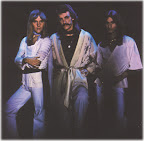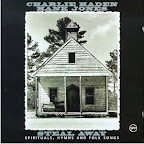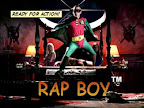
I never listen to Rush anymore, but last month I was finishing up my semester at Rutgers and procrastinated by listening to
Signals and starting this weblog. Now, I LOVED Rush in high school—I remember making a mixtape for a minor crush of mine that included only three bands over an hour and a half of tape: just R.E.M., Genesis and Rush. That poor girl! I love
Document more than ever, but Genesis and Rush remain in my own private time capsule, beloved only for the memories.
I discovered rock criticism my freshman year of college, and was forcefully confronted by the cold truth that Rush was not the best band in the world.
Critics hate these guys, and looking back, this was a profound moment for me because I needed to know why. And over the next fifteen years, I passionately devoted my time to learning why, by studying music and aesthetic theory, and now music history. I stopped thinking about Rush a decade ago, but the combustion that initial conflict created stays with me. I still love hearing why others love the music they love or hate the music they hate, and this is the reason why.
With that in mind, I was very surprised by the unexpected charge I got listening to
Signals again after all these years. Rush is definitely a riff-based band, but unlike Led Zeppelin or AC/DC, they don’t have a particular aesthetic agenda: they’ll try anything. Listen to the keyboard riff from “Subdivisions,” the opening guitar figure from “Analog Kid,” or the faux-funk bass synthesizer from “New World Man.” Notice how each signifies as a novelty where other bands search for meaning or self-expression. I mean this as a compliment: a “novelty” can be clever, while “meaning” is often leaden or cumbersome—just because an artist wants to say something meaningful doesn’t mean that they ever do. I like the sound of musicians making shit up, and
Signals is a mismatched hoot.
I also like Rush’s lack of taste: where Led Zeppelin is “cool,” Rush is “neat.” Think of Neil Peart moving the beat around underneath “Subdivisions,” or the deliciously overblown synthesized choirs of “Analog Kid.” If their melodies and riffs could be better, their heated group interaction sometimes makes up for it. And if the first six tracks win me over as sound, the unlistenable romanticized pessimism of “
Losing It” reminds me songs have lyrics, and kills the momentum.
So, like my brethren, I obviously no longer think Rush is the best band in the world. But I’m thirty, and the world is complicated, and sometimes a thing can be both good and bad, and it’s okay to enjoy the good parts. But it's also hard to stomach the bad parts. Ain’t that a bitch.






